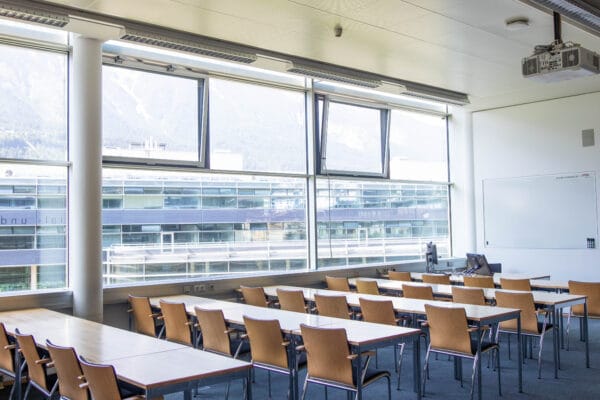
NAME:
MCI - SR 303
BUILDING:
Management Center Innsbruck
FLOOR:
3
TYPE:
Seminar Room
CAPACITY:
54
ACCESS:
Only Participants
EQUIPMENT:
Beamer, Handicapped Accessible, PC, Sound System, Whiteboard, WLAN (Eduroam), Microphones
Historical and cultural documentaries are more than mere records of the past; they serve as vital tools for understanding and connecting with cultures in our rapidly changing world. “Echoes of the Forgotten” investigates the traditions and experiences of isolated mountain communities, whose cultural identities face the threat of erasure. By capturing their stories, this documentary preserves invaluable historical records that offer insights into the richness of human experience. Through personal interviews, archival footage, and striking visuals, the documentary unveils the lives of communities silenced by history, highlighting the importance of cultural memory. It emphasizes the power of documentaries in educating viewers about complex social issues and fostering empathy towards marginalized groups. As dominant narratives often obscure underrepresented voices, this work brings attention to those narratives at risk of being lost, empowering communities to reconnect with their heritage and pass down their knowledge to future generations. As the world races towards progress, “Echoes of the Forgotten” poses a critical question: what do we lose when we forget the past? By prompting viewers to reflect on memory, identity, and the human cost of societal advancement, this documentary not only preserves cultural heritage but also encourages a deeper understanding of the interconnectedness of diverse societies. Through critical engagement with these histories, viewers are invited to scrutinize current social and political landscapes, nurturing a more informed and empathetic global community.

We and use cookies and other tracking technologies to improve your experience on our website. We may store and/or access information on a device and process personal data, such as your IP address and browsing data, for personalised advertising and content, advertising and content measurement, audience research and services development. Additionally, we may utilize precise geolocation data and identification through device scanning.
Please note that your consent will be valid across all our subdomains. You can change or withdraw your consent at any time by clicking the “Consent Preferences” button at the bottom of your screen. We respect your choices and are committed to providing you with a transparent and secure browsing experience.